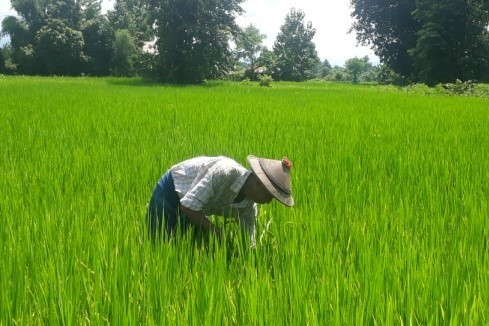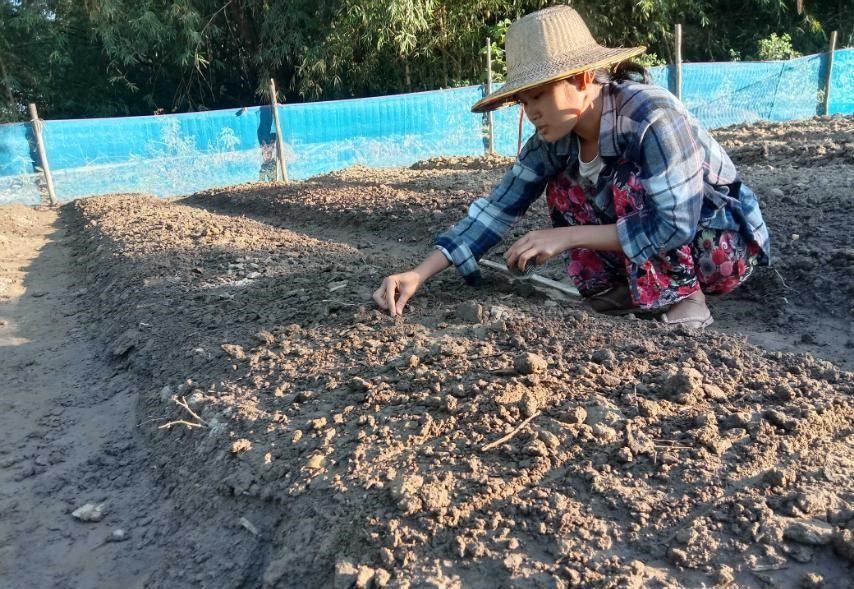Myanmar Nyaungdon
$50,000 needed of $100,000

Implementing Organization
Catholic Relief Services (CRS)
Program Summary
The dual challenges of COVID-19 and political unrest ihave made life difficult for farmers in Myanmar. Even before these challenges arose, agricultural extension services were limited. Since February 2021, those services have completely halted. In addition, challenges with linkages between farmers and market actors means that access to key agricultural inputs as well as opportunities to sell crops at harvest have been limited. Farmers have to figure out the markets by themselves, although many lack access to market information.
In order to address this situation, CRS and local partner KMSS Yangon are helping farmers to build their knowledge of improved cultivation methods that reflect changing weather patterns and natural resource management in order to improve resilience and food security. At the village level, farmer producer groups are being established to improve the access to market information and market engagement. The program is also promoting nutrition-sensitive homestead gardening, which is intended to improve dietary diversity and promote gender-equitable behaviors at the household level.
Success Stories

One Farmer’s Training Leads to Community Resilience
Twenty-two-year-old Hla Hla* was an active farmer before political unrest caused her to have to put her university career on hold. Her passion for farming impressed the Producer Group Management Team set up by local partner Karuna Mission for Social Solidarity. They selected her to participate in a transformative three-month youth field-intensive training program because of her farming experience and also because she wanted to support her community’s agriculture production efforts once she graduated.
“The training program opened my eyes to innovative agricultural techniques,” Hla Hla said. She immediately saw how mulching, trellis systems, and efficient fertilizer application would allow her improve her family’s farming practices. She was thrilled to diversify her skills and explore new opportunities.
When she returned home to her family’s four acres of farmland she established a demonstration plot. She successfully cultivated and sold a variety of vegetables at the local market, not only providing for her family but also contributing to the local economy.
“I also shared radishes and carrots with relatives and neighbors and even had enough to donate to our village monastery. It was fulfilling to share the surplus with my community,” she recalled.
Hla Hla’s dedication and expertise led to another exciting opportunity: a job offer from an inputs company to become an agricultural extension worker in her community. She now helps fellow farmers adopt advanced agricultural practices on their own trial and demonstration plots while earning a salary.
Her story shows how agricultural training can empower young people and foster livelihood resilience in communities. “I am truly grateful for the experiences, knowledge, and opportunities provided by this program,” Hla Hla said. “Being selected for this intensive training not only transformed my life but continues to enrich my community with sustainable practices to follow.”
Myanmar Nyaungdon Program
Led by Catholic Relief Services and Local Partner Karuna Mission for Social Solidarity
*Name changed for security reasons
